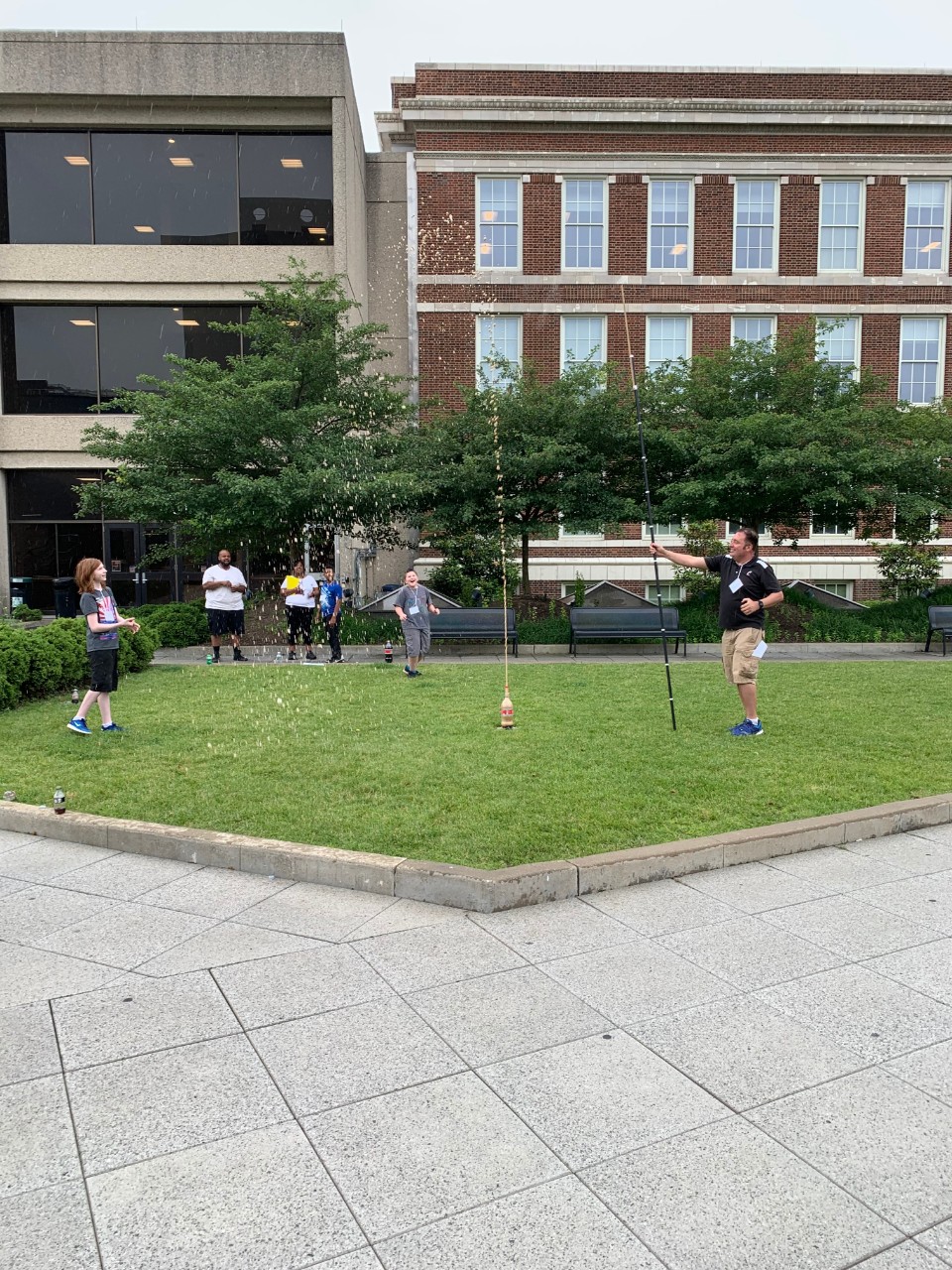
UC Family Engineering Academy brings labs to your living room
UC offers free summer learning for K-12 students and their families

Students at the 2019 Family Science Academy experiment with sunlight and heat. Photo/Provided/Don Wittrock.
The University of Cincinnati is hosting a free online engineering academy for families to continue learning this summer.
Starting June 17, the Family Engineering Academy is a five-week educational program that offers families a variety of opportunities to explore engineering together, including weekly experiments, live online events and video sharing.
Each week, families will receive a mission packet that includes at-home activities, videos, links to resources and a recorded interview with a faculty member from UC's College of Engineering and Applied Science. Covering a different area of engineering each week, the program includes the following topics:
- How does Hostess Do it? Chemical Engineering in Food
- Family Style Engineering: Every Problem Is an Opportunity
- Probes and Pokes in Microscopes: Artificial Intelligence in Cancer Detection
- Materials Magic: Enter the Matrix of Composites
- Whirligigs, Rockets and Space — Oh, My!
Families are encouraged to complete hands-on challenges at their own pace from home or even outside (practicing proper social distancing). All activities and challenges can be completed using common household materials.
Every Friday and Saturday, families can log into a live video chat with the featured UC engineering faculty member to discuss the week’s challenge, ask questions about engineering and hear more about what engineers really do in their daily work.
Following the discussion, staff and faculty will demonstrate an activity that families can try from home to practice engineering skills in their everyday world. The activities guide families through the scientific process, encouraging them to experiment, test and troubleshoot when something doesn’t go as expected.
Chats also give parents and caregivers a chance to ask questions about helping their children explore their interest in STEM, from home learning to college preparation.
To further expand learning, families are invited to record and post videos of their activities via FlipGrid, an online learning app. They can log in any time to share progress updates on their weekly activities and see how fellow academy participants are experimenting.
“The families can try the activity at home and see how other families are doing with their challenge throughout the week on FlipGrid," said Don Wittrock, program coordinator in the college’s Office of Inclusive Excellence and Community Engagement, which is coordinating the academy. “By watching other families’ results, they can get ideas to tweak it, alter it, to continue to explore.”
Wittrock hopes the format will create a meaningful alternative to the cooperative learning that would be taking place if students and their families were in person together, witnessing each other’s different problem-solving strategies.
The program aims to help students develop strong problem-solving skills and make connections between engineering and the real world, he said.
“The goal is to provide engagement opportunities with the faculty, show what goes on at the college and hopefully, inspire young people to be engineers,” Wittrock said.
Families can register now online for free to receive weekly mission packets, virtual event links and instructions to access to the academy’s FlipGrid.
Featured image at top: An experiment at the 2019 Family Science Academy. Photo/Provided
CPS Strong
Our city is only as strong as our public school system. By aligning programs and services to ensure readiness, create access, and foster success, we can achieve educational transformation and positively impact the future of our university and our city. Next Lives Here.
Related Stories
Before the medals: The science behind training for freezing mountain air
February 19, 2026
From freezing temperatures to thin mountain air, University of Cincinnati exercise physiologist Christopher Kotarsky, PhD, explained how cold and altitude impact Olympic performance in a recent WLWT-TV/Ch. 5 news report.
Discovery Amplified expands research, teaching support across A&S
February 19, 2026
The College of Arts & Sciences is investing in a bold new vision for research, teaching and creative activity through Discovery Amplified. This initiative was launched through the Dean’s Office in August 2024, and is expanding its role as a central hub for scholarly activity and research support within the Arts & Sciences (A&S) community. Designed to serve faculty, students, and staff, the initiative aims to strengthen research productivity, foster collaboration, and enhance teaching innovation. Discovery Amplified was created to help scholars define and pursue academic goals while increasing the reach and impact of A&S research and training programs locally and globally. The unit provides tailored guidance, connects collaborators, and supports strategic partnerships that promote innovation across disciplines.
Blood Cancer Healing Center realizes vision of comprehensive care
February 19, 2026
With the opening of research laboratories and the UC Osher Wellness Suite and Learning Kitchen, the University of Cincinnati Cancer Center’s Blood Cancer Healing Center has brought its full mission to life as a comprehensive blood cancer hub.
